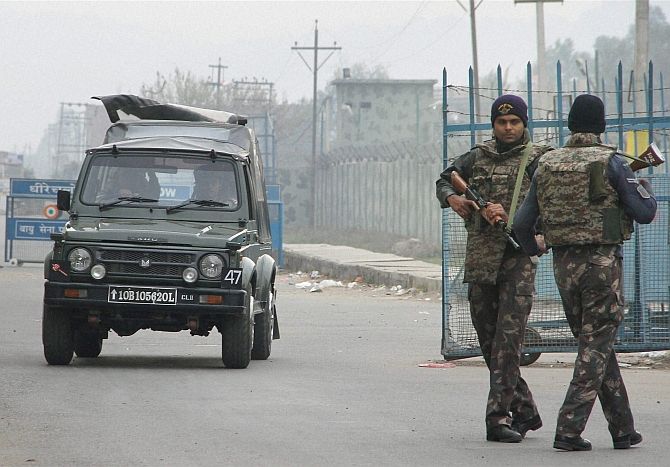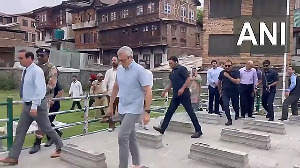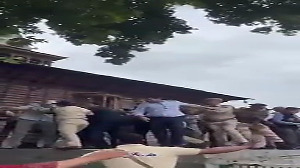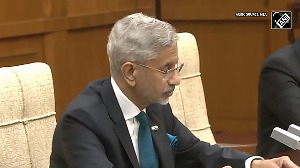 Raising questions over the role of Pakistan's powerful military in the Pathankot terror attack, a former ambassador to India has said that the army does not appreciate Prime Minister Nawaz Sharif's attempts to decide on the country's policy towards India.
Raising questions over the role of Pakistan's powerful military in the Pathankot terror attack, a former ambassador to India has said that the army does not appreciate Prime Minister Nawaz Sharif's attempts to decide on the country's policy towards India.
Ambassador Ashraf Jehangir's comments come in the wake of Pathankot attack and a simultaneous attack on Indian consulate in Mazar-e-Sharif in northern Afghanistan just ahead of the Foreign Secretary level talks between Indian and Pakistan scheduled for January 15.
Raising questions over Pakistan military's role in the attacks, Qazi said that this could be the establishment's way of telling the prime minister who is the boss in Lahore.
"It is not yet clear what our military's attitude was to (Prime Minister Narendra) Modi's stopover in Lahore. We know that Kargil happened after (prime minister Atal Bihari) Vajpayee's visit to Lahore in 1999; Mumbai occurred after progress in the backchannel talks of the mid-2000s; and now Pathankot takes place after another Lahore yatra (trip)," Qazi said in an article titled "Pathnakot and power plays", in Dawn newspaper.
"Has our prime minister once again been 'reined in' by 'the boys' (a term used to describe military establishment) to let him know who is boss?
"The participation of the Chief of Army Staff (Raheel Sharif) in a meeting chaired by the prime minister to consider the information provided by India is to be welcomed. However, it does not necessarily mean the military appreciates the prime minister's attempts to wrest exclusive control over Pakistan's India policy," he said.
Supporting India's claims on the attack, Qazi said India has provided Pakistan 'actionable intelligence' regarding the attack on the Pathankot airbase and demands satisfactory follow-up action if the foreign secretary talks are to start in three days' time.
"Our prime minister has assured the Indian prime minister he will do the necessary. The US is urging India not to postpone dialogue. Reports suggest a number of NATO countries consider the intelligence supplied (including mobile phone conversations between the attackers and suspected handlers in Pakistan, a Jaish-e-Mohammad letter, DNA samples of the attackers, their voice record samples, etc) to be credible leads if not conclusive evidence," the former ambassador said.
Pakistan's international legal obligations require it to follow up on these leads.
A repeat of the Mumbai stand-off would expose Pakistan to "ridicule and ignominy", Qazi said, adding that the country could come under immense international pressure, including the threat of sanctions, if it does not cooperate with India.
He also criticised the concept of civil-military relations is Pakistan and said that the Pakistani establishment regard the Kashmiri struggle only as 'philosophical', and 'irrelevant' concerns.
Qazi served as Pakistan's High Commissioner to India from 1997-2002, Ambassador to China from 1994 to 1997 and to Russia from 1991-1994.











